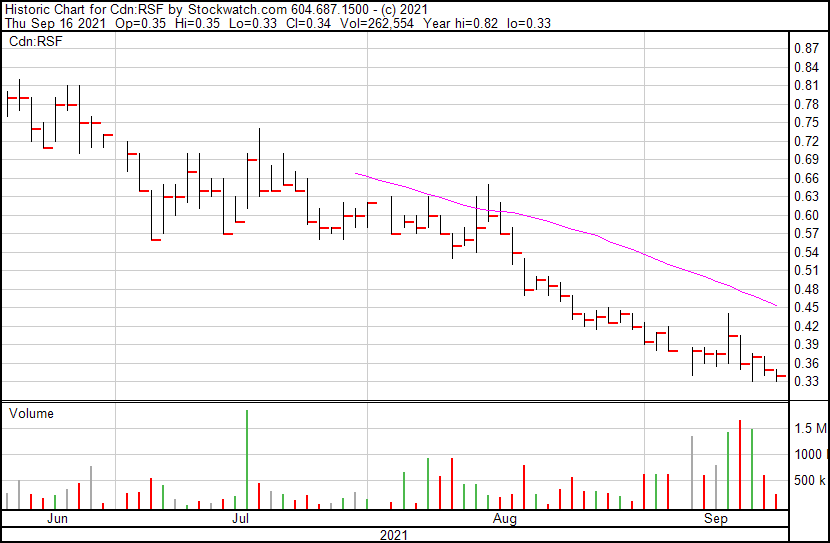Week in Review (Week 5)
Change is inevitable. As someone who is terrified of change, that’s a hard pill to swallow. In fact, if you told me that the Domino’s Pizza franchise was going under, I would probably have a nervous breakdown. I haven’t saved up hundreds of Piece the Pie Rewards® for nothing. You don’t seriously expect me to start going to Little Caesars, do you? The point is, I don’t handle change well. I can barely get around to changing my oil, let alone changing my choice of food. However, plant-based alternatives have been whispering sweet nothings into my ear lately. Honestly, if you have been keeping up with my sector roundups, you probably think I am the biggest plant-based shill at this point. For my passionate omnivores, don’t worry I haven’t made the switch yet, but I am pretty damn close. Americans on the other hand? They are going hog wild for plant-based. According to a study conducted by Ipsos Retail Performance, the number of Americans following a plant-based diet has increased by 9.6 million in the last 15 years. This indicates a 300% increase or nearly 3% of the US population.
With the sheer volume of plant-based companies looking for their chance to bloom in the sunlight, a 300% increase isn’t too surprising. However, you’re probably sick of reading about the same five or six plant-based companies every week. That’s why, for your reading pleasure, I have gone out of my way to scour the plant-based sector for four new budding plant-based companies you may have missed, including Boosh Plant-Based Brands Inc. (VEGI.C), NEXE Innovations Inc. (NEXE.V), MeaTech 3D Ltd. (MITC.Q), and Rritual Superfoods Inc. (RSF.C). In this week’s sector roundup, we will be looking at compostable coffee pods, superfoods, elixirs, and…cultured meat products? While writing about the plant-based sector has certainly pushed me closer to living a plant-based lifestyle, I still have my reservations. With this in mind, will these four companies be able to seal the deal? Let’s get into it!
Boosh Plant-Based Brands Inc.
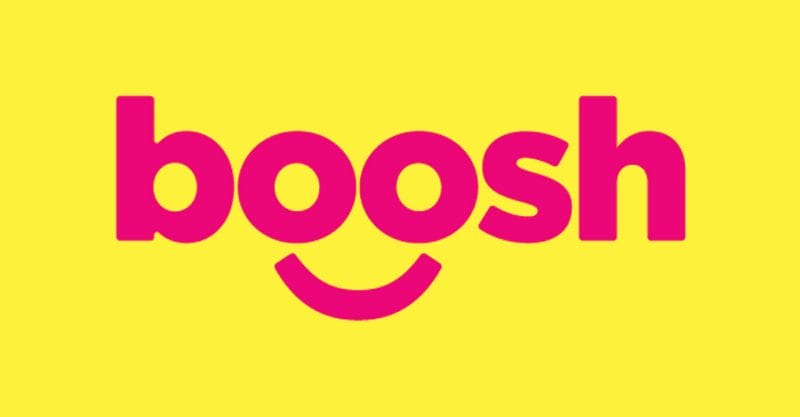
- $20.733M Market Capitalization
Boosh Plant-Based Brands Inc. (VEGI.C) is a plant-based nutritional comfort foods company committed to offering quick meal options that are 100% plant-based. As someone who has experienced heartbreaks, university, and general laziness, I would consider myself a comfort food connoisseur. In fact, I was known as the guy who would bring frozen meals to parties so he could eat something before drinking. Impressive, right? Unfortunately for me, conventional frozen meals are packed with sodium, fat and calories. Needless to say, by the time I graduated, my freshman 15 had turned into my senior 30. However, Boosh has developed six 100% plant-based, heat-and-serve bowls for one as well as entrees for two. With this in mind, Boosh products are intended to help consumers meet their health goals by providing convenient plant-based meals for people who find it difficult to prepare meals from scratch. Where was Boosh when I was struggling to cook Minute Rice in university?
So, what has Boosh been up to lately? Nothing too crazy on the Boosh front, however, on September 13, 2021, the Company announced that it had secured the Presenting Level Sponsorship position at the Planted Expo in Vancouver. The Planted Expo, formerly Veg Expo, is a popular consumer event and is Canada’s largest plant-based event of the year. Housing over 200 vegan edible and lifestyle businesses, including Boosh, the Planted Expo provides a great opportunity for consumers to browse a variety of plant-based brands in one location. To sweeten the pot for shareholders, all Boosh shareholders attending the show will receive a free swag-bag including coupons for Boosh products as well as Boosh apparel.
“This is such an outstanding opportunity for Team Boosh to meet thousands of consumers looking to incorporate more plant-based foods into their diet. Our 2,000 sq ft booth is located in front of the stage and designed to be family-oriented with games for the kids, lots of taste testing, guest chefs cooking up delicious treats, and our entire line of Boosh frozen and refrigerated meals available for purchase on the spot!” states founder Connie Marples.
Let’s talk about Connie Marples for a second. Connie is an entrepreneurial badass who started making plant-based dishes in her tiny kitchen. For years, she would deliver frozen or hot meals within her close circle, eventually distributing small batches of food weekly to local customers throughout the Greater Vancouver Area. Thus, Boosh was born, a now publicly-traded company with products sold in grocery stores across Canada. In other news, on September 7, 2021, Boosh announced its Depository Trust Company (DTC) eligibility, which provides the Company with clearance, settlement, custodial, underwriting and proxy services for a substantial portion of all equities. In layman’s terms, this essentially streamlines an investor’s ability to purchase Boosh shares on the open market.
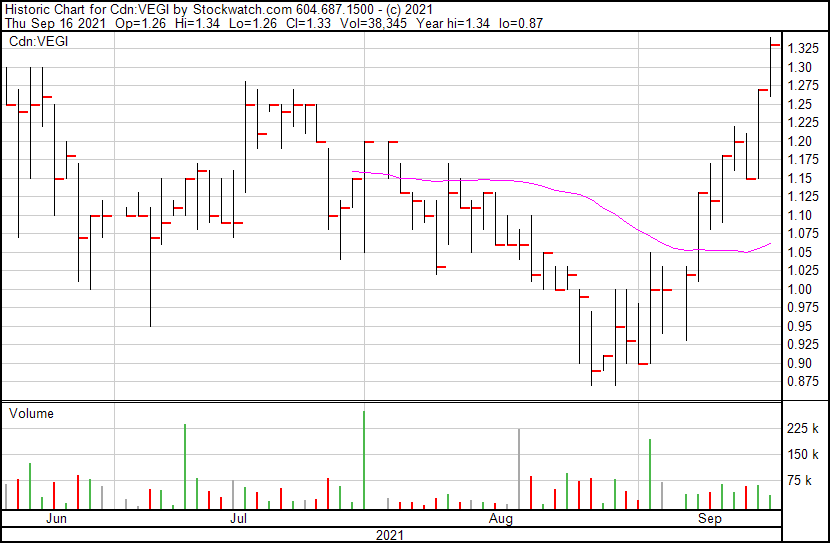
NEXE Innovations Inc.
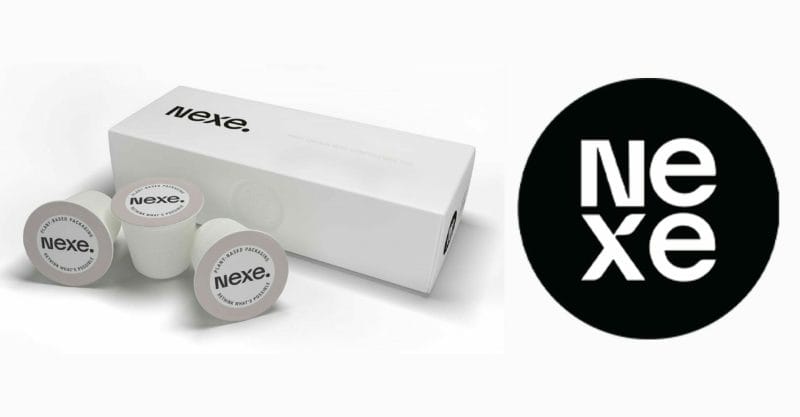
- $79.749M Market Capitalization
NEXE Innovations Inc. (NEXE.V) is an innovative materials company that designs, manufactures and leverages disruptive technology to make plant-based products. I have covered the Company extensively in the past, however, NEXE and I drifted apart during my plant-based hiatus. Yet, like the burning sun, my love for NEXE has not been extinguished. Founded in 2015, the Company has used 3D printing to design, prototype and patent the world’s first compostable single-serve coffee pod. NEXE’s pods are made using plant-based compostable materials that break down to non-toxic substances when composted. As a result, the Company’s pods can be composted in as little as 35 days, compared to conventional coffee pods, which are made of non-biodegradable materials that can remain in a landfill for 500 years or longer.
“NEXE is committed to producing sustainable products that make zero-waste living easy. We believe that there doesn’t have to be a trade-off between quality, great taste, convenience, and sustainability. We are also working with well-respected publications to share our story about how we are spearheading the composability movement, beginning with coffee pods. These initiatives are all underway,” added Ash Guglani.
So, what has NEXE been up to lately? Similar to Boosh, not too much has happened with NEXE. Most recently, on July 27, 2021, the Company announced that it would be launching its premium espresso pods in the US and Canada at nexecoffee.com on July 29, 2021. With this in mind, NEXE’s premium espresso pods are the first NEXE-branded coffee product the Company has introduced into the single-serve coffee pod market, which is currently valued at more than USD$25 billion annually. Sadly, approximately 56 billion coffee pods are consumed each year, eventually ending up in landfills and leaving behind contamination and non-biodegradable microplastics (MPs).
Prior to NEXE’s latest press release, on May 28, 2021, the Company announced that it had signed a commercial relationship agreement with Vejii Holdings, the largest online vegan marketplace in the US. NEXE signed this agreement with the intent to sell its XOMA Superfoods line of products on Vejii’s e-commerce marketplace in the US. Shortly after, NEXE revealed that its XOMA Superfoods line would also be made available on Amazon.com and Amazon.ca, representing a huge commercial milestone for the Company.
Commercial achievements aside, a sizeable portion of NEXE’s value comes from its patented compostable coffee pods. As single-use plastics are rapidly being banned in North America, including Canada’s single-use plastic ban, a unique demand for compostable alternatives will become paramount in the near future. With this in mind, NEXE is ahead of the curve and could see additional growth relative to this demand. Sure, NEXE hasn’t been too active lately, however, the Company’s long-term profitability looks promising.
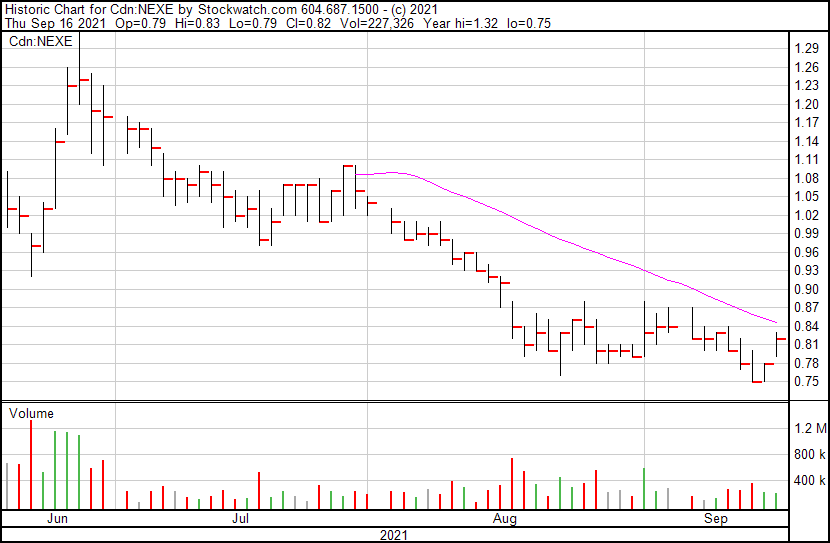
MeaTech 3D Ltd.
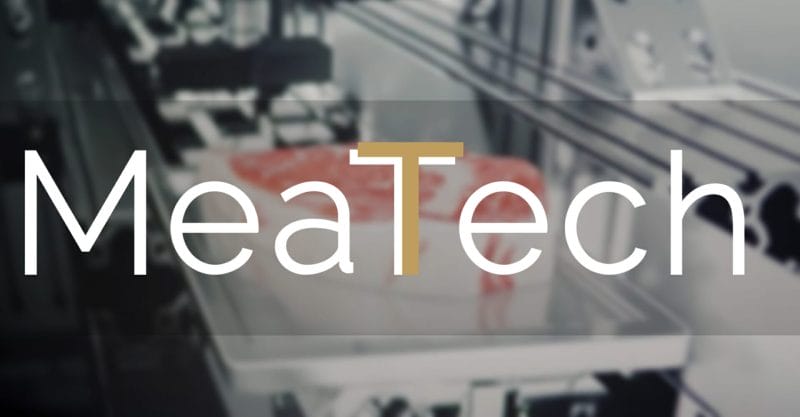
- $72.87M Market Capitalization
MeaTech 3D Ltd. (MITC.Q) is an odd company. MeaTech 3D identifies as an international company at the forefront of the cultured meat revolution. Personally, I don’t know the first thing about the cultured meat revolution, but after doing some research I feel both wildly uncomfortable and unequivocally interested. To wrap our heads around MeaTech 3D, let’s first talk about cultured meat. Cultured meat refers to meat produced by in vitro cell cultures of animal cells. In simpler terms, cultured meat is created by painlessly harvesting muscle cells from living animals like cows, chickens and pigs. Scientists then feed and nurture these cells so they will multiply to create muscle tissue, the main component of the meat we eat. Biologically, cultured meat is exactly the same as the meat tissue that comes from cows.
Cultured meat first started gaining traction in 2013, when professor Mark Post at Maastricht University created the first hamburger patty grown directly from cells. Hanni Rützler, one of the food critics who tasted this fantastical abomination, described it as, “close to meat, it’s not that juicy, but the consistency is perfect.” Ethically speaking, cultured meat is a mixed bag. Any marketer worth their salt has been comparing cultured meat, or clean meat, to the second coming of Christ. In reality, although not to the same degree, the production of cultured meat still involves slaughter. For example, fetal bovine serum (FBS) is extracted from fetal calves and is commonly used for cell growth. However, the pregnancy status of a cow is usually unknown until after it has been slaughtered. When the fetus is exposed, FBS samples are not gathered until the fetus dies inside the uterus or has been immediately euthanized.
I could go on forever about cultured meat, but the bottom line is that it’s complicated. So, what sets MeaTech 3D apart from the rest? Well, I could try and explain it in words, but I think the Company summarizes their cultured meat solution exceptionally well in this one-minute video. What has MeaTech 3D been up to lately? Recently, on September 14, 2021, the Company announced that its Belgian subsidiary, Peace of Meat, had cultivated just over 700 grams of pure chicken fat biomass in a single production run. Cultured meat is one thing, but why fat biomass?
“Producing this quantity of pure cultured material in one run is a breakthrough towards potentially manufacturing cultivated chicken fat at an industrial scale and cost parity. The product, pending novel foods approval, is designed to be just like conventional chicken fat. Our shorter-term goal is that this type of cultured chicken cells can be commercialized by MeaTech in strategic hybrid product development collaborations. Today’s preliminary production success brings us one step closer to our longer-term goal of changing human diets towards more sustainable, yet equally savory, food choices,” commented David Brandes, Managing Director, Peace of Meat.
As someone who has tasted some pretty lackluster plant-based meat alternatives, believe me when I say that it is really hard to live up to the real thing. It always felt like there was something missing, namely texture and flavor that could rival meat-based products. With this in mind, MeaTech believes that real cultured animal fats can potentially deliver the signature flavors, aromas, and textures that plant-based meat alternatives are missing. In case you were interested, this new product category is aptly named “hybrid meat.”
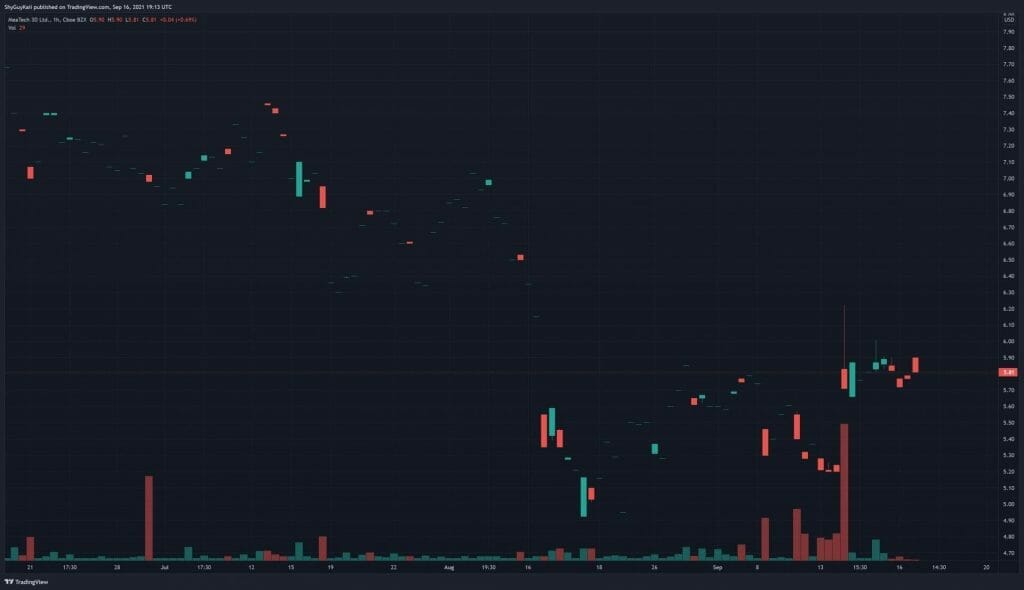
Ritual Superfoods Inc.
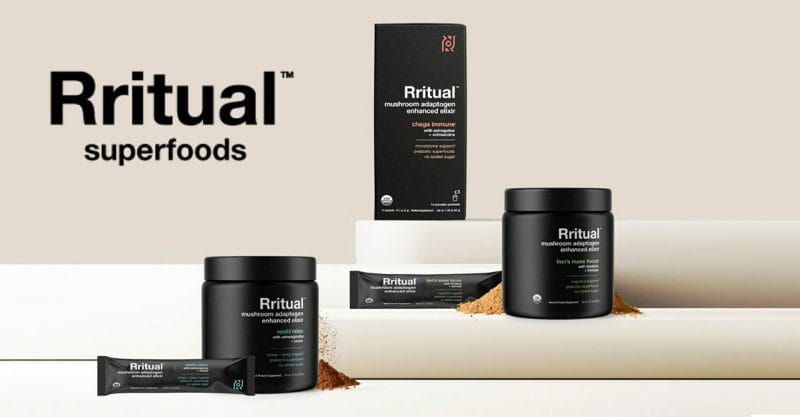
- $20.387M Market Capitalization
Rritual Superfoods Inc. (RSF.C) is a natural wellness company focused on plant-based product innovation using functional mushroom and apoptogenic herbs to create elixirs. No, we aren’t talking about the same kind of elixirs you’d drink in a video game, although that would be pretty cool. For starters, let’s talk about adaptogens. Adaptogens are certain herbs and mushrooms thought to have health benefits. With this in mind, Rritual’s organic, gluten-free, and vegan elixirs are intended to provide consumers with meaningful mental, emotional, and physical benefits. The Company’s elixirs are made with limited, organic ingredients beginning with naturally harvested mushrooms, herbal spices like cinnamon and ginger, and whole foods like coconut and fruit powders to create blends that are both delicious and beneficial. Currently, Rritual offers three different elixirs, including Chaga Powder, Lion’s Mane Powder, and Reishi Powder.
So, what has Rritual been up to lately? On September 10, 2021, the Company announced that it had closed its previously announced bought deal public offering and raised total gross proceeds of $4,000,000. Nothing too exciting here, however, on August 26, 2021, Rritual announced that its functional superfoods were experiencing strong growth at CVS Stores throughout the US as indicated by a third consecutive month of re-orders following the brand’s launch earlier this year. Why does this matter? Well, in 2020, CVS opened 650 HealthHUB locations and intends to have 1,500 locations open by the end of this year. For context, HealthHUB locations offers a wide range of health care services, new product categories, digital and on-demand health tools, trusted advice and personalized care. With this in mind, Rritual’s products are currently available at CVS’s HealthHUB locations. Memes aside, let’s not forget that CVS, despite its reputation, is currently the largest pharmacy chain in the US.
Not much meat on these bones, however, the global functional food market is projected to reach USD$275.7 billion by 2025, expanding at a CAGR of 7.9%. Overall, the functional food market has seen a rise in popularity in the last two decades, largely due to increased awareness of diseases thought to be associated with certain food and beverage products. With this in mind, Rritual Superfoods, armed with a portfolio of functional food products and partnerships with major brands including Crossmark, Amazon, The Good Trends, CVS and Rite Aid, is well-positioned to capitalize on this rapidly advancing market.
